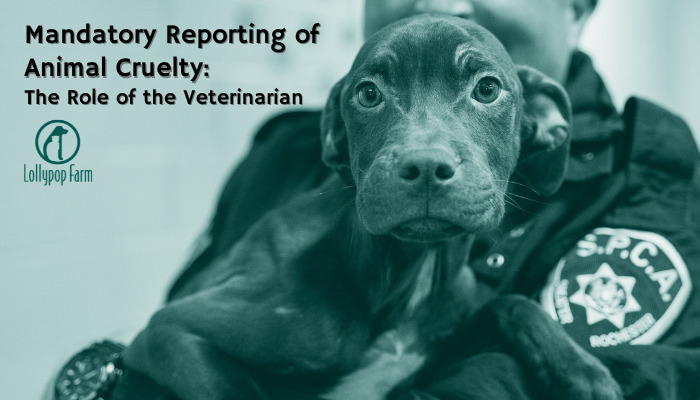Animal cruelty represents a pervasive societal issue, igniting robust debates about ethics, legality, and responsibilities. One crucial aspect surrounding this conversation is the question of whether certain professions are mandated to report instances of animal cruelty. Various states in the U.S. have enacted legislation requiring professionals in specific fields to take action if they suspect animal abuse. This obligation stems from the expectation that those working closely with animals have not only the authority but also the moral obligation to safeguard their well-being.
To understand the nuances of mandatory reporting, we must delve into the professions most commonly implicated. Veterinarians are among the most notable. They occupy a unique position, serving as both caretakers and guardians of animal welfare. Given their extensive education and firsthand experience with animal health, veterinarians are often the first to encounter signs of abuse or neglect. Consequently, many states have established laws compelling veterinarians to report suspected cases of animal cruelty to the appropriate authorities.
The rationale behind such mandates is twofold. First, animal health professionals witness the direct consequences of mistreatment. Their medical expertise enables them to recognize injuries and behavioral issues consistent with abuse, such as recurrent trauma or extreme fear responses. Thus, their reports can serve as critical evidence in investigations. Secondly, the legal obligations reflect a societal consensus that those with specialized knowledge are best positioned to identify and address cruelty. When an abuse case is reported, it can catalyze the legal system to take decisive action against offenders, thereby fostering a protective environment for vulnerable animals.
Beyond veterinarians, other professions also bear the weight of these reporting requirements. Animal control officers, for instance, play a frontline role in safeguarding animal welfare. They are tasked with enforcing local animal ordinances, which often include addressing neglect and abuse. Their unique position as enforcers of animal-related laws necessitates a vigilant approach to reporting any signs of cruelty they encounter in the field. Similar to veterinarians, animal control officers receive training that equips them with the skills needed to observe and act on indicators of mistreatment.
Moreover, for professionals involved in wildlife rehabilitation, the drive to report cruelty assumes an even more intricate facet. These individuals often work alongside endangered or injured species, presenting them with specific legal frameworks aimed at protecting wildlife. In many states, rehabilitation practitioners are compelled to report any incidents of predation or damage that not only endanger individual animals but can threaten entire populations. This adds another layer of responsibility, emphasizing the interconnectedness of ecosystems and the ripple effects of cruelty.
Teachers and school personnel, while not typically seen as directly related to animal welfare, are increasingly recognized as pivotal in observing and reporting animal cruelty. Educational programs that incorporate animal welfare education underscore the importance of instilling empathy toward all living beings. This progressive attitude cultivates a culture where children learn to respect and protect animals, encouraging reporting when they witness cruelty, whether at home, in their communities, or in public spaces.
However, despite the existence of mandatory reporting laws, challenges prevail. Variability in state legislation creates a confusing landscape. Certain jurisdictions may impose reporting obligations on veterinarians and animal control officers yet exempt others, leaving significant gaps. This inconsistency can lead to ambiguity about who holds the responsibility to act. Often, professionals in allied fields may remain uncertain about their role, leading to hesitation in addressing suspected cruelty.
Beyond legal obligations, the ethical implications of not reporting animal abuse are also profound. Foregoing the responsibility to report can perpetuate cycles of abuse. A culture that tolerates cruelty, whether driven by convenience, ignorance, or desensitization, ultimately bestows a disservice on both animals and society. The ethical dilemma hinges on balancing personal responsibility with the potential repercussions of reporting. What might happen to the animal in question? What about the repercussions for the alleged abuser? These questions weigh heavily on the shoulders of those in professions with a reporting mandate.
At the heart of mandatory reporting lies a societal endeavor to foster a culture of protection and respect for animals. It is a recognition of the intrinsic value of all living beings and an acknowledgment of the human capacity to enact change. This approach reinforces the understanding that cruelty can be addressed through collective action—from veterinarians to teachers, from animal control officers to the general public. Responsibility to report is not merely a legal mandate but an ethical obligation to prevent harm and promote welfare.
Consequently, the imperative for education and awareness for both professionals and the wider community can never be overemphasized. When the public is informed of the signs of animal cruelty and understands the procedures for reporting, it can foster a vigilant society that refuses to turn a blind eye. Animating a strong sense of collective responsibility can inspire more rigorous enforcement of existing laws, leading to a comprehensive safeguard for animals at risk.
Looking ahead, it is evident that the conversation surrounding mandatory reporting of animal cruelty must evolve. This will require sustained advocacy, interdisciplinary collaboration, and public awareness campaigns aimed at galvanizing communities. Legislation must also grow to encompass the changing landscape of societal attitudes toward animals, ensuring that all individuals in pivotal roles are empowered and obligated to act when they encounter potential cruelty.
In summary, the mandatory reporting of animal cruelty creates a framework designed to protect the vulnerable—those who cannot defend themselves. The expectation that certain professionals must report suspected abuse constructs a vital safeguard within our society. By addressing this complex landscape, we can move toward a future where animal cruelty is unequivocally condemned, and those who would harm animals are held accountable for their actions.








